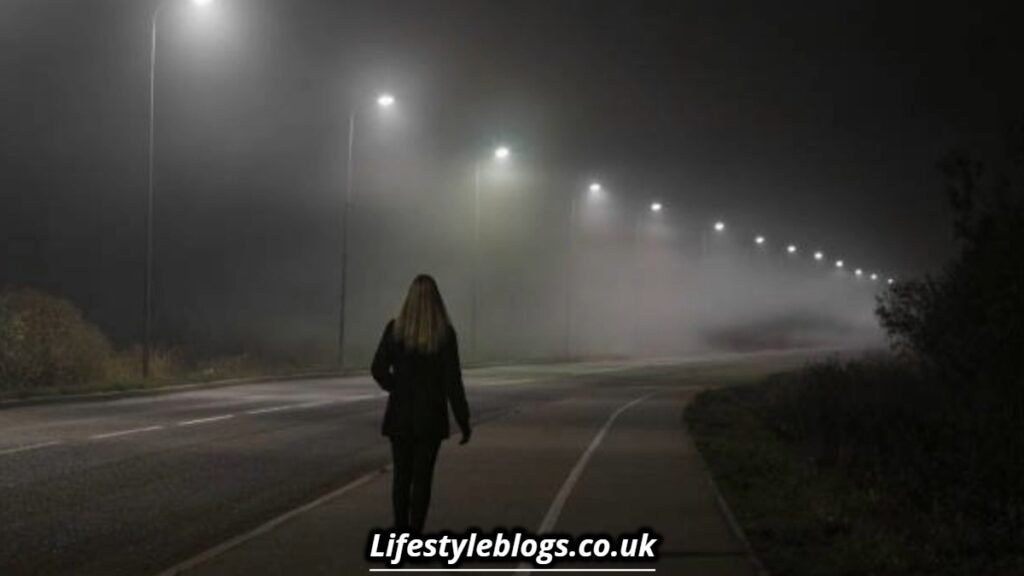Introduction: A Sound in the Darkness
You’re walking home late at night. The streets are quiet, the air is still — and suddenly, you hear someone whistle.
It echoes.
There’s no one in sight.
You shiver a little. Is it just the wind? Or is there something more?
Across cultures and generations, whistling at night has been seen as something more than innocent sound — a superstition tied to spirits, omens, and warnings. But is it truly bad luck? Or just folklore passed down in whispers?
Let’s find out.
Spiritual Meaning of Whistling at Night
Whistling is often seen as a way to attract attention. But in the quiet of night, many traditions believe it attracts the wrong kind of attention — not from people, but from spirits.
Common spiritual interpretations:
- Summoning spirits: In some cultures, it’s believed that whistling at night calls out to jinn, ghosts, or other entities.
- Disturbing the unseen: Nighttime is when the spiritual realm is thought to be more active. A whistle may be seen as a provocation.
- Opening portals: Some esoteric beliefs say that certain sounds — like whistles — can shift energies or open spiritual “doors.”
Spiritual Verdict: Whistling at night is often seen as an invitation to unseen energies — whether protective or harmful depends on intent, belief, and location.
Islamic Perspective
Islam does not mention whistling at night directly in the Qur’an or Hadith, but cultural practices across Muslim communities often discourage it.
Views include:
- Association with jinn: In various Islamic cultures, whistling at night is believed to attract jinn or shayateen.
- Disruption of peace: The night is a time of rest and prayer; unnecessary sounds may disturb the tranquility encouraged in Islamic lifestyle.
Islamic Verdict: While not explicitly haram or bad luck, whistling at night is culturally discouraged and often associated with attracting negative spiritual entities.
Hindu Beliefs
In Hindu households, especially in rural areas, whistling at night is often seen as taboo.
Cultural reasons include:
- Attracting spirits: Like in many spiritual systems, sound is believed to carry energy — and nighttime sound may draw spirits.
- Disrespect to the goddess of wealth (Lakshmi): Some believe it drives away good fortune.
Hinduism Verdict: Not always considered bad luck, but generally avoided to maintain spiritual cleanliness and avoid unwanted energies.
Christian Beliefs
Christian doctrine does not associate whistling at night with bad luck or sin.
However:
- Folk Christianity in various European regions warned that night-whistling could summon the devil or wandering souls.
- Moral tone: Whistling late at night was often frowned upon as mischief or idleness.
Christian Verdict: No official religious stance, but local folk beliefs often warn against it.
Sikhism View
Sikhism rejects superstition. Whistling, day or night, is not inherently good or bad.
- Guru Nanak emphasized: Good or bad is determined by actions, not omens or sounds.
- However, modesty and respect in behavior — especially at night — are still valued.
Sikh Verdict: Whistling at night isn’t bad luck — but being mindful is encouraged.
Judaism View
Judaism, particularly in mystic traditions like Kabbalah, views sound and silence with spiritual weight.
- No direct prohibition on whistling at night
- However, in some Eastern European Jewish communities, old tales link night whistling to attracting dybbuks (malevolent spirits)
Judaism Verdict: No clear religious doctrine, but mystical folklore sometimes sees it as risky.
Buddhist & Taoist Views
In Buddhism, whistling isn’t prohibited, but nighttime is considered a time for meditation and mindfulness, not noise.
In Taoism, unnecessary sound at night is discouraged, as yin energy dominates — making the spiritual atmosphere more sensitive.
Verdict: Avoiding night whistling maintains inner peace and spiritual harmony — not bad luck, but a path of mindfulness.
Cultural Superstitions Around the World
- Japan: Whistling at night is believed to attract snakes or thieves.
- Philippines: Locals believe whistling at night calls evil spirits.
- Russia: Whistling indoors or at night is said to drive away money.
- Korea: Similar superstitions say it invites ghosts or bad spirits.
Even in the West, especially rural or older communities, people sometimes avoid whistling at night — believing it “wakes the dead.”
Scientific Perspective
Scientifically, there is no evidence that whistling at night causes bad luck or spirit activity.
But:
- At night, people are more alert to sound
- Whistles can be alarming in quiet settings
- Fear may arise from psychological suggestion — especially if one believes the superstition
Science Verdict: It’s just sound waves in the air — no luck, good or bad, involved.
Personal Reflection
I was in the hostel once when my friends and I jokingly whistled at night. A senior stopped us and said, ‘People here say that whistling brings evil spirits.’ I laughed at the time, but that night the power went out and the wind was so strong that it started to feel scary. Maybe it’s not superstition — but the environment definitely has an effect!
Conclusion: Is It Bad Luck to Whistle at Night?
Let’s recap:
- Islam: Not haram, but culturally discouraged (especially due to jinn associations)
- Hinduism: Generally avoided at night — seen as spiritually disrespectful
- Christianity/Judaism: No official stance, but folk beliefs discourage it
- Buddhism/Taoism: Discouraged to maintain spiritual harmony
- Sikhism: No superstition — actions matter more than sounds
- Global cultures: Widely believed to summon spirits or bring misfortune
- Science: No basis — only sound waves, no spirits involved
Final Verdict: Whistling at night isn’t universally bad luck — but it’s deeply symbolic in many cultures. Whether you believe in spirits or not, it’s a sound that carries more than just a tune in the dark.

